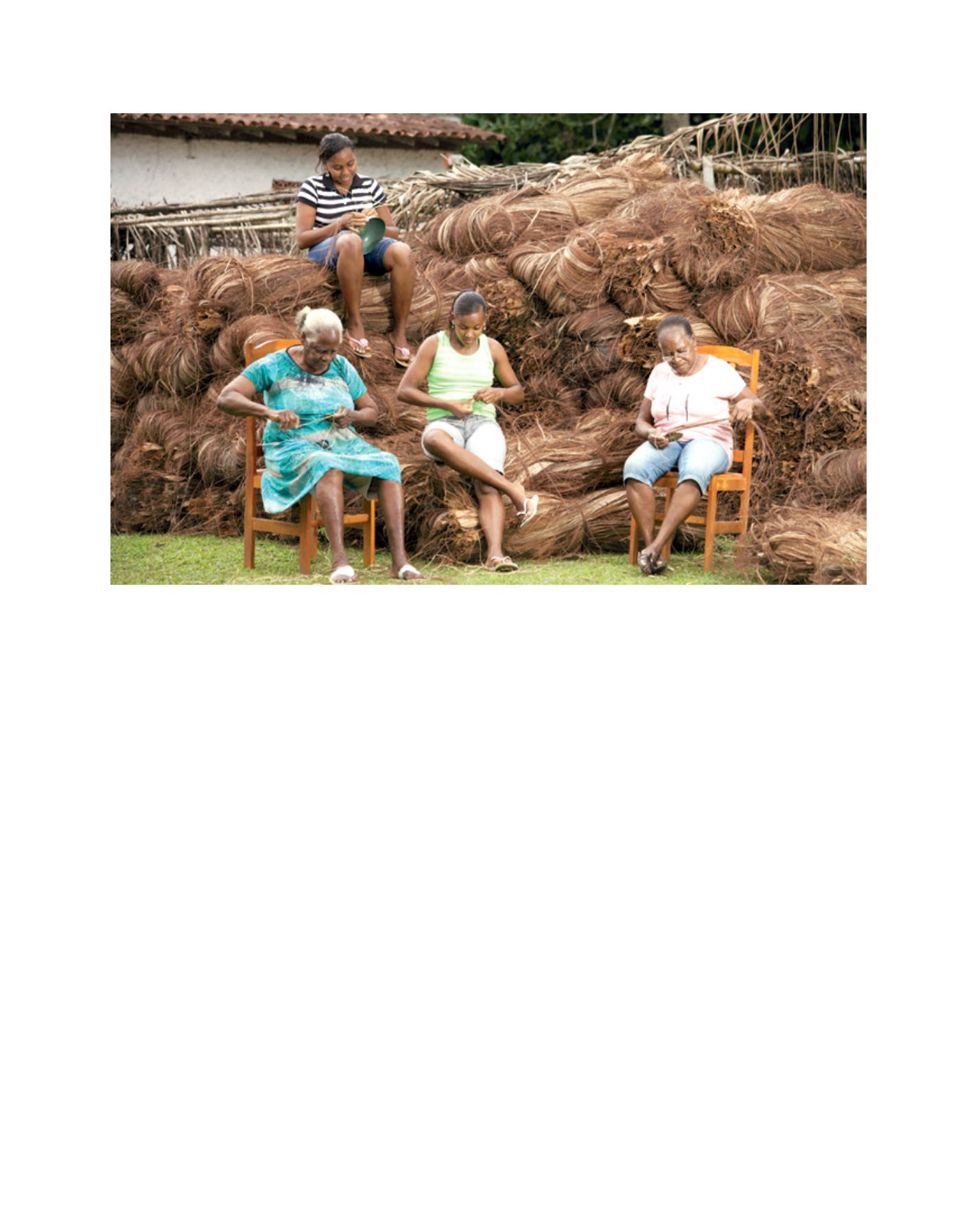

[
] 226
Image: Eduardo Aigner
similar technology for 56,000 litre reservoirs, and provides
water to irrigate food crops for families who have already
benefited from the previous programme.
Finally, agroecological transition entails gradually
increasing forms of production and consumption, and
research and rural extension services, which promise a
symbiotic relationship between sustainable natural resource
management, healthier food production and income gener-
ation. This should be done through the enhancement and
preservation of traditional knowledge and agricultural
practices, in conjunction with efforts to gradually reduce
the use of pesticides while promoting alternative forms to
increase food production and income, thus creating the
conditions to make agroecological and organic production
economically viable for family farmers.
The overarching vision for Brazil’s rural development in
the medium to long term lies in the gradual drive to tran-
sition to an agroecological production model, in synergy
with an increasingly robust economic organization of
family farmers’ associations and cooperatives. This decision
has been ratified at the highest level, with President Dilma
Rousseff’s launch of the National Plan for Agroecology
and Organic Production (PLANAPO 2013-2015) in 2013.
PLANAPO includes the development of technologies to
increase production and productivity of selected seeds.
For instance, the National Program of Seeds and Seedlings
provides R$150 million for the acquisition and distribu-
tion of plant and animal genetic resources through the PAA
programme, and R$17.1 million in the implementation of
infrastructure for seed banks and community houses.
Family farmers can fulfil their potential to contribute to
sustainable development if states around the world create
and implement public policies that correspond to their
various needs. Those needs are best addressed through
permanent dialogue based on mutual trust and accountability
between government officers and family farmers’ organiza-
tions, through institutionalized mechanisms at all levels.
Brazil’s recently approved National Plan for Sustainable and
Solidary Rural Development (PNDRSS) resulted from just
that: 436 conferences at territorial, municipal and sectoral
levels which congregated 42,000 people, culminating in a
national conference with 1,500 delegates representing the
diversity of Brazil’s family farmers. The plan compiled 100
priority proposals and fused them with existing government
plans to form a strategy to guide the Brazilian Government’s
actions for rural development and family farming in the
short, medium and long term.
The entire process of the International Year of Family
Farming – from the campaign initiated in 2008 to the
creation of national committees and its celebration in 2014
– has marked significant milestones on the road to deep-
ening the dialogue between rural social movements and
governments and driving public policies that strengthen
family farmers worldwide. The continuation of this process
after 2014 should enable more sustainable development
models to emerge.
MDA’s Programme for the Productive Organization of Rural Women aims to promote the economic empowerment of women and strengthen their
organizations by tailoring the ministry’s entire set of policies towards their specific needs
D
eep
R
oots
















